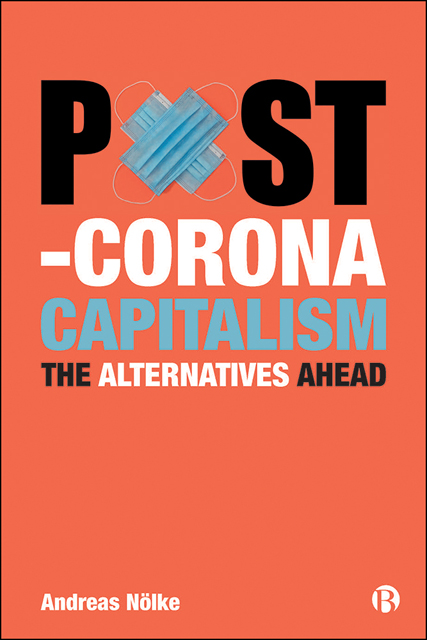Book contents
- Frontmatter
- Dedication
- Contents
- List of Abbreviations
- Acknowledgements
- Preface
- 1 Introduction: Confronting a Multidimensional Crisis of Capitalism
- Part I Capitalism and Society
- Part II Domestic Institutions of Capitalism on the Demand Side
- Part III Domestic Institutions of Capitalism on the Supply Side
- Part IV The International Institutions of Capitalism
- Part V Anthropocene Capitalism
- Part VI Geo-economic Shifts in Global Capitalism
- Part VII Ideologies in Contemporary Capitalism
- References
- Index
7 - Inequality: Increase or Reduction?
Published online by Cambridge University Press: 13 October 2022
- Frontmatter
- Dedication
- Contents
- List of Abbreviations
- Acknowledgements
- Preface
- 1 Introduction: Confronting a Multidimensional Crisis of Capitalism
- Part I Capitalism and Society
- Part II Domestic Institutions of Capitalism on the Demand Side
- Part III Domestic Institutions of Capitalism on the Supply Side
- Part IV The International Institutions of Capitalism
- Part V Anthropocene Capitalism
- Part VI Geo-economic Shifts in Global Capitalism
- Part VII Ideologies in Contemporary Capitalism
- References
- Index
Summary
At the onset of the crisis, the coronavirus was considered by some to be the ‘great leveler’ (Scheidel, 2017). In contrast to the economic and social challenges of the Global Financial Crisis, the virus poses a risk to everybody. Moreover, major crises such as wars and pandemics often have reduced inequality, if combined with high mortality rates that lead to a scarcity of workers, thereby improving their bargaining position (Scheidel, 2017, 2020; Sayed and Peng, 2021: 54). Finally, rebuilding efforts after major wars also reduced inequalities via massive government interventions into the private sector, based on tax increases (Scheidel, 2020: 293). However, soon concerns about corona-related inequality loomed large in the general public. The rich were able to sit out the lockdown in their villas much easier than the poor in their small apartments were, and the previous were able to work from home, whereas the latter had to risk infections in their dangerous jobs. Still, these are only two among the many dimensions of inequality. Concepts from Political Economy allow us to bring some order in the various effects of the pandemic and to study whether the crisis leads to an increase of inequality or offers opportunities for a reduction of the latter.
Political Economy and inequality
Questions of inequality are a core concern of substantial parts of Political Economy scholarship. Traditionally, ‘Critical’ (or ‘Marxist’ or ‘Structuralist’) approaches to International Political Economy (IPE) share a strong interest in questions of inequality, particularly on the exploitation of the labourers by the bourgeoisie, with the latter as the owners of the means of production. While traditional Marxist thought focused on individual economies, later revisions in theories of imperialism, dependency and World System Theory additionally highlight the exploitation of the periphery of the world economy – simplified: the Global South – via the core of the world economy (Balaam and Dillman, 2014: 78–100; O’Brien and Williams, 2016: 16–19). Correspondingly, questions of inter-country inequality always are very prominent in IPE scholarship on North–South relations (Phillips, 2020; Wade, 2020). More recently, new aspects of inequality have found a prominent role in IPE scholarship; namely, gender and race inequalities. Intersectional approaches in Political Economy highlight that how the combination of class relations with colonial legacies and traditional patterns of social reproduction lead to particularly severe inequalities (Andersson, 2020; LeBaron et al, 2021).
- Type
- Chapter
- Information
- Post-Corona CapitalismThe Alternatives Ahead, pp. 41 - 48Publisher: Bristol University PressPrint publication year: 2022



